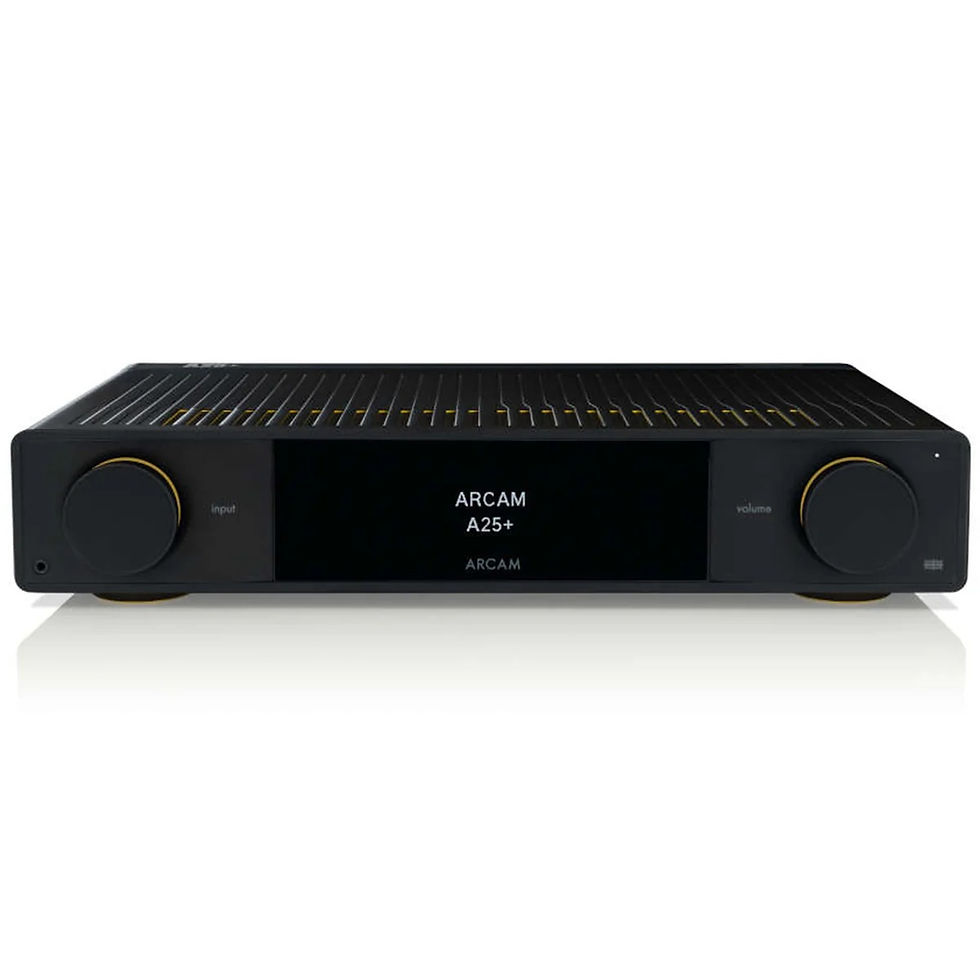Discrete Circuitry
A discrete circuit is composed of electronic components that are separate, individual devices – also called ‘discrete’ components. These are ‘passive” components (like resistors, capacitors and inductors) as well as ‘active’ ones, in this case, transistors. The opposite of this would be an integrated circuit with operational amplifiers (op-amps) in the signal chain. Countless hours worth of listening tests and years of experience have shown us how to make a neutral, natural, dynamic, and vivid sound. Standard phono pre-amplifiers with integrated circuits have tens or hundreds of components, but discrete designs employ hundreds or thousands of components by comparison. That makes for an extended and more costly design process but results in the best sound for your money.
Fully Balanced
Phono Box RS2 employs a true fully balanced design principle. Balanced transmissions consist of a hot and cold (also called + and -) signal. Both the + and – signal chains effectively carry the same musical information. A truly balanced amplifier can now extract the final musical information out of the +/- signals and subtract (remove) all noise that could potentially be added along with the transmission. In a true, fully balanced amplifier like Phono Box RS2, the + and – sections of both the left and right channels are treated individually, which doubles the amplifier sections as a result.
Split Passive EQ
Phono Box RS2 uses split passive equalization for both its RIAA and DECCA curves. This is more costly to design and implement but ensures the most accurate representation of the ideal EQ curve. Split passive equalization allows for better impedance matching and lower deviation from the ideal RIAA or DECCA curve.
Numerous Cartridge Loading Options
No other phono preamp in the world offers the gain flexibility of Phono Box RS2. A huge range from 40dB (voltage amplification by 100x) up to 70dB (voltage amplification by 3690x) is possible. Load impedance can be set on the fly via a potentiometer – a system invented by Pro-Ject Audio Systems. It allows you to seamlessly adjust impedance during playback and immediately assess the impact of various loading options. By nature, cartridges suffer from small imbalances between the left and right channels. To correct this, Phono Box RS2 also introduces a new feature that is rare in this price category. A potentiometer allows you to adjust to the exact center of the sound stage in a range of 2dB to the left or right.
Steel/Aluminium Chassis
The Phono Box RS2 has a steel chassis that is covered by aluminum panels. This construction delivers great rigidity and splendid isolation from interference.
ADDITIONAL INFORMATION
| Weight | 1.6 kg |
|---|---|
| Dimensions | 20 × 20.6 × 7.2 cm |
| Color | Black, Silver |
Features
- MM & MC capable
- Fully balanced, true dual mono design
- Fully discrete hardware design – NO op-amps!
- Fully passive RIAA & DECCA equalisation
- Balanced XLR & unbalanced RCA In & Outputs
- Unique continuously variable loading
- Channel balance control
- Superior low noise / low distortion design
- Metal casing protects against vibration and interference
- Available in black or silver
- Handmade in Europe
Pro-Ject Phono Box RS2 Phono Preamplifier
- Input MM capacitance/impedance: 50pF, 100pF, 150pF, 200pF, 250pF, 300pF, 350pF or 400pF / 47kOhms
- Input MC impedance/capacitance: Stepless 10ohms – 1000 Ohms / 50pF
- MM Gain (+ 6dB using XLR sockets): 40, 43, 46, 50 dB
- MC Gain (+ 6dB using XLR sockets): 60, 63, 66, 70 dB
- Signal / Noise ratio MM (40dB): 82dB (RCA, XLR), 89dB A-wt (RCA, XLR) (10mV)
- Signal / Noise ratio MC (60dB): 66dB (RCA,XLR), 76dB A-wt (RCA,XLR) (1mV)
- MM THD+N: <0,005% (MM 40dB, 1kHz)
- MC THD+N: <0,04% (MM 60dB, 1kHz)
- MM THD: <0,0015% (MM 40dB, 1kHz)
- MC THD: <0,0024% (MM 60dB, 1kHz)
- RIAA-equalization curve accuracy: < +-0,4dB / 20Hz – 20kHz
- Subsonic filter: at 20Hz with 18dB/octave
- Input: 1 pair RCA/phono sockets, 1 pair XLR sockets
- Line-level output: 1 pair RCA/phono sockets, 1 pair XLR sockets
- Wiring XLR sockets: 1 ground, 2 “hot” and 3 “cold”
- Outboard power supply: 20V/3A DC
- Power consumption: 310mA DC, max. 350mA

































